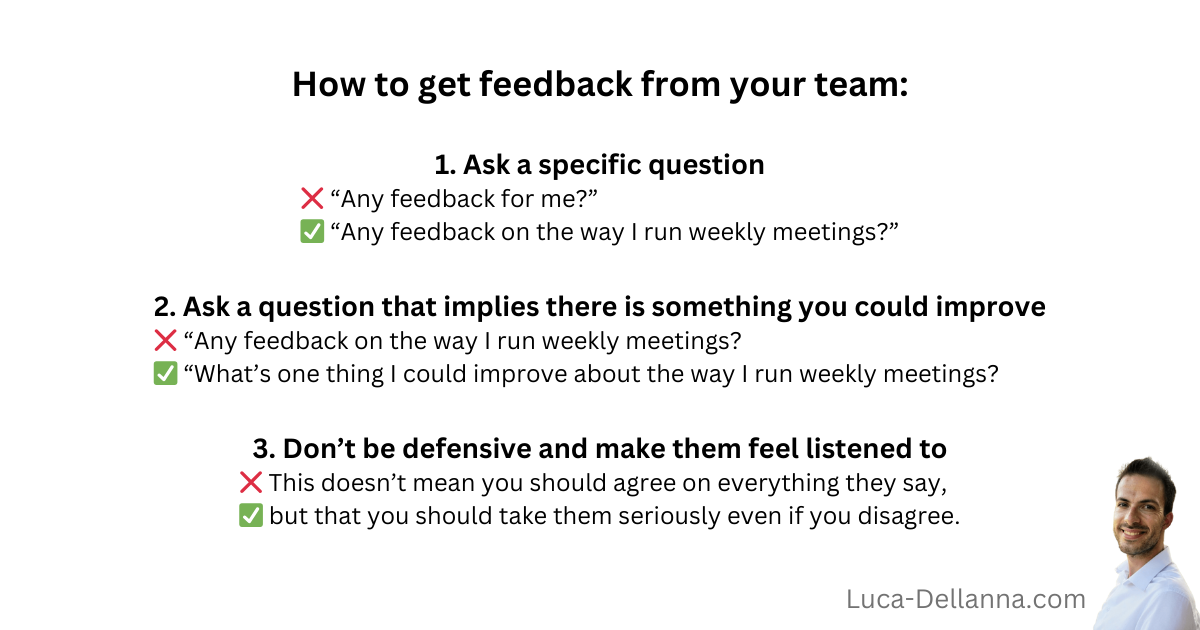How to get feedback from your team
Three simple steps to get more helpful feedback
Published: 2024-09-04 by Luca Dellanna
Here are the three steps:
- Ask a specific question
- Ask a question that implies there is something you could improve
- Don’t be defensive and make them feel listened to
Ask a specific question
Bad: “What could I improve?”
Good: “What could I improve about the way I run weekly meetings?”
A generic question is likely to elicit generic, thus useless, answers.
Conversely, a specific question not only elicits more useful information but also helps the other person come up with suggestions.
Ask a question that implies there is something you could improve
Bad: “What could I improve about the way I run weekly meetings?”
Good: “What is one thing I could do better about the way I run weekly meetings?”
If you simply ask, “What could I do better?”, your interlocutor will have to decide whether you really are open to criticism.
Conversely, if you ask questions such as, “What is one thing I could do better?”, your interlocutor will only have to think about the suggestion, not about whether to make a suggestion at all.Don’t be defensive and make them feel listened to
Obviously, if you react defensively to feedback, people will stop giving it to you.
However, this does not mean that you should accept all feedback. Sometimes, you have a good reason for doing something a certain way.
The key is always to take your interlocutor seriously. Never question how a behavior of yours made them feel. Instead, acknowledge how you made them feel, and then explain transparently what will happen in the future.
Summary
Here is a brief overview of the three steps:
